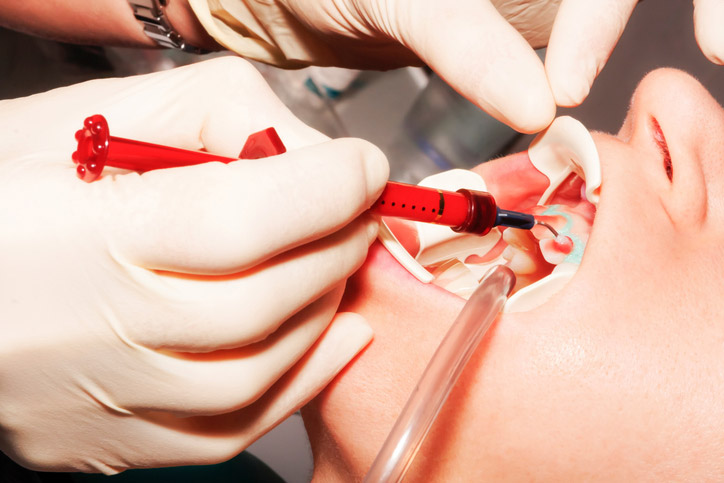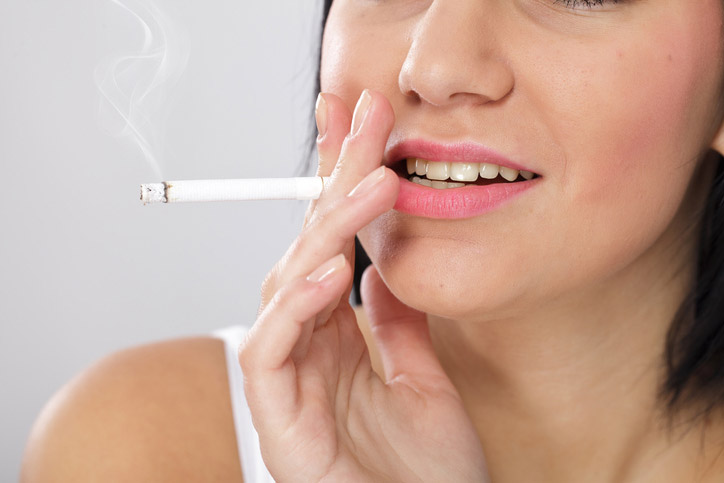Is Smoking after Tooth Extraction Okay?
 Oral surgery is something that many people will experience at some time in their life. A common coming of age surgery is getting the wisdom teeth extracted sometime in their late teens or early twenties. At any point in life, disease or injury may lead to needing a tooth or two extracted. After the surgery, it can take a few days to heal, with some factors such as overall health and lifestyle potentially affecting this time period. Usually, dentists or oral surgeons will give recommendations as to how to handle the recovery period. One of the most common is to avoid smoking.
Oral surgery is something that many people will experience at some time in their life. A common coming of age surgery is getting the wisdom teeth extracted sometime in their late teens or early twenties. At any point in life, disease or injury may lead to needing a tooth or two extracted. After the surgery, it can take a few days to heal, with some factors such as overall health and lifestyle potentially affecting this time period. Usually, dentists or oral surgeons will give recommendations as to how to handle the recovery period. One of the most common is to avoid smoking.
Smoking is a notoriously difficult habit to break. Both the routine and nicotine can be an intense craving for someone who has been doing it for awhile. Even someone who considers themselves to be a casual smoker may have difficulty abstaining if they are told they may not have a cigarette for a certain period of time. If you are having a tooth extracted it is very important to stop smoking for several days after the procedure. This also applies to those who vape or use e-cigarettes. Dentists will commonly recommend that smokers do not smoke at all for at least five days afterward and may even recommend abstaining for up to two weeks. This is very important for several reasons.
“Smoking after having a tooth extracted is unquestionably the most dangerous and damaging thing you can do to the extraction site while it heals.”
General Healing
Inhaling smoke can easily irritate any open wound in the mouth. This is due to the heat and the chemicals that are found in cigarette smoke. An irritated extraction wound not only may be more painful but can also take much longer to heal. The healing process for smokers tends to take longer anyway because their blood is not the same as a healthy person’s. A smoker has less oxygen in their blood, so less oxygen is delivered to the wound site and the healing process is drawn out. Their circulation is also not as good as a non-smoker’s which compounds the problem. The nicotine that causes this decreased blood supply is found not just in cigarettes but in e-cigarettes and vape juice too.
Dry Socket
When a tooth is extracted a blood clot is formed in the open area. It is vital that this clot stays in place while the extraction site heals. If the clot dissolves or is removed then a condition called dry socket usually occurs. This is an infection due to the exposed nerve, inner gum, and even bone being exposed to bacteria and foreign debris that are in the mouth. This is a very painful condition that lasts for days and results in a longer healing time. Some have even described dry socket as one of the most painful experiences they have ever had.
A smoker is especially vulnerable to dry socket for two reasons. First, the simple act of sucking on a cigarette can pull the clot out of place. This is a danger for those who vape and use e-cigarettes as well. In fact, dentists recommend that for the first few days after surgery all patients avoid using straws or any food and drink that would require some sort of sucking activity. The second way a dry socket can occur is that smoke from cigarettes also runs the risk of drying up or dissolving the clot.
In some situations, dry socket can develop into an abscess and cause further damage to the area and jaw. After the infection is cleared a root canal may be required if the nerve has started to die. In more severe cases, the bone may even be damaged by bacteria and infection. If pain after extraction increases and, especially if there is swelling, be sure to visit your dentist as soon as possible to ensure you are not dealing with an abscess.
What Should You Do?

Of course, you have access to the internet and can easily find blogs and videos from people who have had their teeth extracted and then tried to figure out a way to safely smoke afterward. It is very important to understand that no dentist will ever endorse any technique that puts your extraction wound at risk. As uncomfortable as those few days without smoking may be, if you give yourself a preventable dry socket because you could not resist and trusted some random guys on the Internet, you will be in for some real pain. The choice may seem hard but the answer is simple: do not risk it. Once you have a dry socket, there is nothing that can be done to reverse it. In some cases, a dressing or packing may be able to be installed by the dentist but usually, you just have to ride it out since the use of dressings is not agreed upon in the dental community.
While it can definitely be hard for a habitual smoker or vaper to go cold turkey for five or more days, the stakes for this are much higher than simply trying to quit. There are real complications and consequences that can easily occur if you do not follow the doctor’s orders and take proper care of your extraction wound after surgery. Try to think of this as an opportunity to get a jump start on kicking the habit altogether. There is never a bad time to stop smoking but there are plenty of bad times to do it.
Medically Fact-Checked & Written by Our Dental Editorial Team
You can read more about our editorial guidelines by clicking this link and learn more about the Emergency Dentists USA editorial team here.


